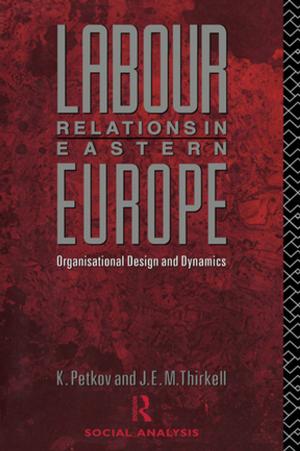Farmers' Cooperatives and Sustainable Food Systems in Europe
Nonfiction, Science & Nature, Technology, Agriculture & Animal Husbandry| Author: | Raquel Ajates Gonzalez | ISBN: | 9781351216289 |
| Publisher: | Taylor and Francis | Publication: | June 13, 2018 |
| Imprint: | Routledge | Language: | English |
| Author: | Raquel Ajates Gonzalez |
| ISBN: | 9781351216289 |
| Publisher: | Taylor and Francis |
| Publication: | June 13, 2018 |
| Imprint: | Routledge |
| Language: | English |
Farmers' cooperatives are very prevalent in the European Union, where they account for approximately half of agricultural trade and thus are key to articulating rural realities and in shaping the sustainability credentials of European food and farming. This book analyses to what extent farmers' cooperatives are working to benefit their members, are showing concern for their communities and are promoting cooperative economies. It offers a multilevel set of theoretical, disciplinary, methodological, empirical and social perspectives, using the UK and Spain as contrasting examples, and analyses whether agricultural cooperatives contribute to achieving sustainable food systems. The book presents empirical data from diverse and rich case studies, from large, international cooperatives, to small, multi-stakeholder initiatives. This provides an alternative viewpoint to that of economics, which tends to dominate the study of agricultural cooperatives. The author presents a new theoretical framework that provides a novel lens to study farmers’ cooperatives as organisations deeply embedded in power dynamics of the food system and agricultural policy that shape and constraint their potential to adopt cooperative and sustainable practices.
The book is a major addition to the study of agricultural cooperatives and their impact in the development of fairer and more sustainable food systems and it is one of the first detailed accounts of multi-stakeholder food and farming cooperatives in Europe. It is a valuable resource for all scholars working on cooperatives, as well as for students studying agricultural and food policy, environmental justice and rural sociology.
Farmers' cooperatives are very prevalent in the European Union, where they account for approximately half of agricultural trade and thus are key to articulating rural realities and in shaping the sustainability credentials of European food and farming. This book analyses to what extent farmers' cooperatives are working to benefit their members, are showing concern for their communities and are promoting cooperative economies. It offers a multilevel set of theoretical, disciplinary, methodological, empirical and social perspectives, using the UK and Spain as contrasting examples, and analyses whether agricultural cooperatives contribute to achieving sustainable food systems. The book presents empirical data from diverse and rich case studies, from large, international cooperatives, to small, multi-stakeholder initiatives. This provides an alternative viewpoint to that of economics, which tends to dominate the study of agricultural cooperatives. The author presents a new theoretical framework that provides a novel lens to study farmers’ cooperatives as organisations deeply embedded in power dynamics of the food system and agricultural policy that shape and constraint their potential to adopt cooperative and sustainable practices.
The book is a major addition to the study of agricultural cooperatives and their impact in the development of fairer and more sustainable food systems and it is one of the first detailed accounts of multi-stakeholder food and farming cooperatives in Europe. It is a valuable resource for all scholars working on cooperatives, as well as for students studying agricultural and food policy, environmental justice and rural sociology.















